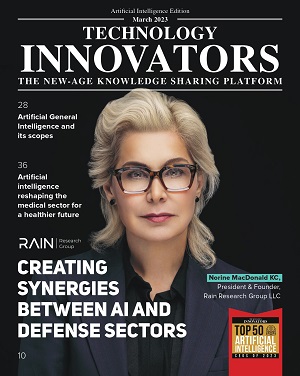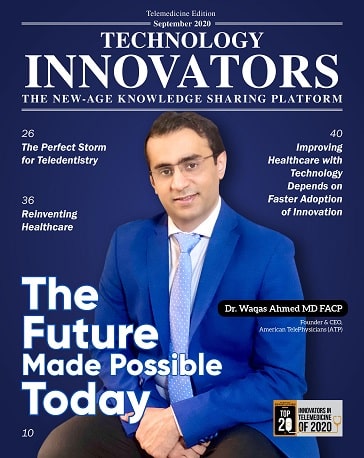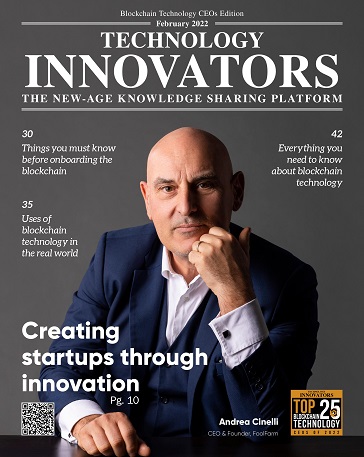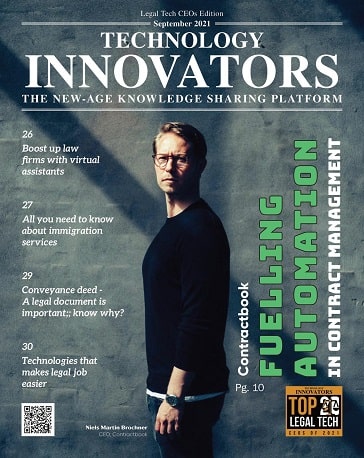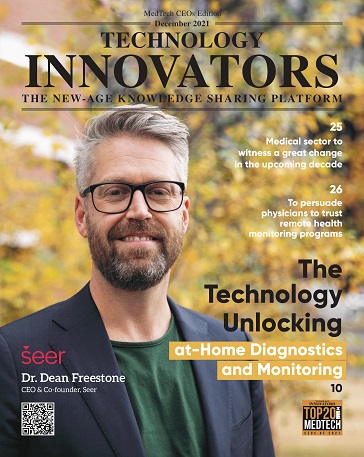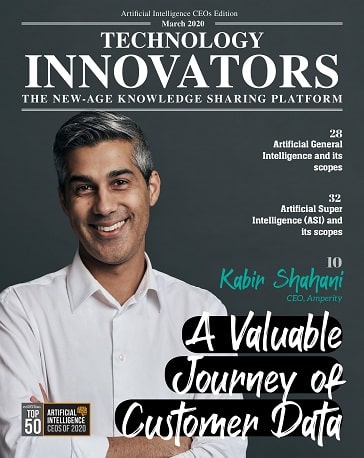Must-Subscribe Tech Magazines for Innovators
Cutting-Edge Digital Transformation Trends
Explore cutting-edge digital transformation trends and meet the tech innovators shaping the future. Get inspired to elevate your business strategy today!
Influential Tech Publications for Industry Insights
Cutting-Edge Digital Transformation Trends: Navigating the Future of Innovation
Digital transformation is no longer just a buzzword; it is a fundamental shift in how businesses operate, engage with customers, and harness technology to drive innovation. With rapid advancements in technologies such as artificial intelligence (AI), blockchain, cloud computing, and the Internet of Things (IoT), companies across all industries are undergoing digital transformations to stay competitive, improve operational efficiency, and deliver personalized customer experiences. In this article, we explore the cutting-edge digital transformation trends that are shaping the future of business, and how organizations can leverage these technologies to remain ahead of the curve.
1. Artificial Intelligence (AI) and Machine Learning (ML) at the Core of Business Strategy
Artificial intelligence (AI) and machine learning (ML) are two of the most influential technologies driving digital transformation. From automating routine tasks to enhancing decision-making processes, AI and ML are enabling businesses to operate more efficiently and respond to customer needs in real-time.
- AI-Powered Automation: Companies are increasingly leveraging AI to automate everything from data analysis and customer service to inventory management and fraud detection. AI-powered chatbots, for example, are revolutionizing customer service by providing instant, personalized responses to inquiries, 24/7.
- Predictive Analytics: Machine learning algorithms are being used to analyze vast amounts of data and generate predictive insights. This helps businesses forecast customer behavior, optimize supply chains, and develop new products or services tailored to market demands.
- Intelligent Decision-Making: AI and ML tools are empowering businesses to make smarter decisions by analyzing historical data, identifying trends, and providing real-time recommendations for improvement.
As AI and ML technologies continue to evolve, businesses are able to harness these tools to not only improve operational efficiency but also to unlock new sources of revenue and deliver enhanced customer experiences.
2. The Rise of Edge Computing for Faster, More Efficient Data Processing
Edge computing is gaining traction as businesses strive to process and analyze data faster and more efficiently. Unlike traditional cloud computing, which involves sending data to a centralized server for processing, edge computing processes data closer to the source, often at the “edge” of a network, such as a device or a local server.
- Improved Performance and Latency: By processing data at the edge, businesses can reduce latency and improve response times. This is particularly important for applications that require real-time decision-making, such as autonomous vehicles, manufacturing robots, and healthcare monitoring systems.
- Data Security: Edge computing also enhances data security by keeping sensitive information closer to its source and reducing the need for data to travel across networks. This minimizes the risk of data breaches and ensures compliance with data privacy regulations.
- IoT Integration: As the Internet of Things (IoT) continues to grow, edge computing is becoming increasingly important for managing the massive amounts of data generated by connected devices. Edge computing enables businesses to process this data locally, reducing the strain on centralized cloud systems and ensuring faster insights.
Edge computing is positioning itself as a key enabler of digital transformation, helping businesses optimize performance, reduce costs, and respond faster to customer needs.
3. Blockchain for Transparency, Security, and Efficiency
Blockchain technology, best known for being the backbone of cryptocurrencies like Bitcoin, is increasingly being adopted by businesses across various sectors to enhance transparency, security, and efficiency. By providing a decentralized and immutable ledger of transactions, blockchain is revolutionizing industries such as supply chain management, finance, and healthcare.
- Supply Chain Transparency: Blockchain enables businesses to track products and assets across their supply chains, ensuring transparency and traceability. This is especially critical for industries such as food and pharmaceuticals, where provenance and authenticity are paramount.
- Secure Transactions: With its ability to provide secure, tamper-proof transactions, blockchain is transforming financial services by enabling faster, more secure payments and reducing the risk of fraud.
- Smart Contracts: Blockchain-powered smart contracts are self-executing contracts with the terms directly written into code. These contracts automatically execute when predefined conditions are met, reducing the need for intermediaries and increasing efficiency.
Blockchain is poised to become a foundational technology for many industries, enabling new levels of trust, transparency, and security in digital transactions.
4. Cloud-Native Applications and Multi-Cloud Environments
As more businesses migrate to the cloud, cloud-native applications and multi-cloud strategies are becoming integral to digital transformation efforts. Cloud-native applications are designed to take full advantage of cloud computing, enabling businesses to develop, deploy, and scale applications more efficiently.
- Agility and Scalability: Cloud-native applications are built using microservices architecture, which allows organizations to develop and deploy new features faster, while also providing the scalability needed to handle varying workloads.
- Multi-Cloud Environments: A multi-cloud strategy involves using multiple cloud service providers to meet different business needs. This approach reduces the risk of vendor lock-in, enhances flexibility, and improves disaster recovery capabilities. By leveraging multiple cloud platforms, businesses can ensure greater reliability and avoid downtime.
- DevOps and Continuous Delivery: The rise of cloud-native applications has also driven the adoption of DevOps practices, enabling businesses to streamline development and operations. Continuous integration and continuous delivery (CI/CD) pipelines help organizations deliver software updates quickly and more reliably.
Cloud-native applications and multi-cloud environments are providing businesses with the flexibility, agility, and scalability needed to drive digital transformation and stay competitive in an increasingly digital world.
5. The Expansion of 5G and Its Impact on IoT and Connectivity
5G networks are revolutionizing the way businesses operate by providing faster, more reliable connectivity for IoT devices and other technologies. With significantly higher speeds and lower latency than previous generations of mobile networks, 5G is enabling businesses to unlock new possibilities in connectivity, automation, and data analytics.
- Enhanced IoT Capabilities: The combination of 5G and IoT is creating new opportunities for businesses to optimize operations. With faster and more reliable connectivity, IoT devices can transmit large amounts of data in real-time, enabling everything from predictive maintenance in manufacturing to smarter cities and connected healthcare devices.
- Smart Cities and Autonomous Vehicles: 5G is expected to play a key role in the development of smart cities and autonomous vehicles. By enabling faster communication between devices and infrastructure, 5G will support innovations in transportation, urban planning, and public safety.
- Augmented Reality (AR) and Virtual Reality (VR): With its low latency and high bandwidth, 5G is expected to accelerate the adoption of AR and VR applications in industries such as entertainment, retail, education, and healthcare.
As 5G continues to roll out globally, businesses will gain access to faster, more reliable connectivity, which will drive innovation and create new business models across a wide range of industries.
6. Cybersecurity and Privacy as a Top Priority
As digital transformation accelerates, businesses are increasingly focused on protecting their data, systems, and networks from cyber threats. With the rise of remote work, cloud computing, and IoT, ensuring the security and privacy of digital assets has become a top priority.
- Zero-Trust Security Models: Zero-trust security, which assumes that all network traffic is untrusted and requires verification before access is granted, is becoming a key component of many organizations’ cybersecurity strategies. This approach helps businesses reduce the risk of breaches and ensure secure access to sensitive data.
- AI-Powered Threat Detection: AI and machine learning are playing a crucial role in enhancing cybersecurity by enabling businesses to detect and respond to threats in real-time. These technologies can analyze patterns of behavior and identify potential vulnerabilities before they are exploited.
- Data Privacy Regulations: As data privacy regulations such as GDPR and CCPA become more stringent, businesses are focusing on ensuring compliance and safeguarding customer data. Secure data storage, encryption, and robust privacy policies are essential for maintaining trust with customers.
Cybersecurity and privacy have become integral to digital transformation efforts, and businesses must continue to invest in advanced technologies and strategies to mitigate risks and protect their digital assets.
7. The Future of Work: Remote Collaboration and Digital Workforce Solutions
The COVID-19 pandemic accelerated the adoption of remote work and digital collaboration tools, fundamentally changing the way businesses operate. As organizations continue to embrace hybrid and remote work models, digital workforce solutions are playing a critical role in facilitating seamless communication and collaboration.
- Collaboration Tools and Platforms: The rise of video conferencing tools, project management software, and collaboration platforms like Microsoft Teams, Slack, and Zoom has allowed businesses to stay connected, even when teams are dispersed across the globe. These tools enable efficient communication, document sharing, and real-time collaboration, regardless of location.
- AI and Automation in the Workforce: AI and automation technologies are increasingly being used to streamline workflows, automate routine tasks, and enhance employee productivity. Virtual assistants, chatbots, and intelligent automation systems are freeing up employees to focus on higher-value work.
- Employee Experience and Wellbeing: Companies are investing in technologies that prioritize employee wellbeing and engagement, such as virtual wellness programs, AI-driven performance analytics, and personalized career development platforms.
The future of work is digital, and businesses are leveraging technology to create more flexible, productive, and connected work environments for their employees.
Conclusion
The trends in digital transformation are reshaping industries and creating new opportunities for businesses to innovate, optimize, and grow. From AI-powered automation and blockchain to edge computing and 5G connectivity, the technologies driving digital transformation are enabling businesses to improve efficiency, enhance customer experiences, and unlock new revenue streams. As organizations continue to embrace these cutting-edge trends, those that can adapt quickly and harness the power of technology will be the ones that lead the way in the future of business. The digital revolution is here, and businesses must embrace it to stay competitive in an ever-evolving marketplace.
Dive into the world of digital transformation trends and technology innovators. Uncover insights that can revolutionize your approach to business and tech!
Join the Global Movement! Subscribe to Technology Innovators Magazine today and be part of the conversation that’s shaping the future of technology across the globe.
Contact us
Want to get in touch? We make it our priority to respond to every request within 24h.


